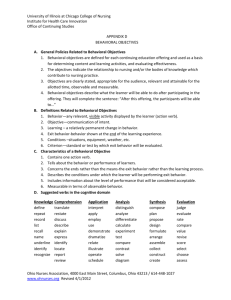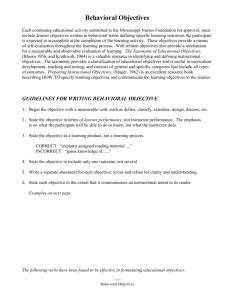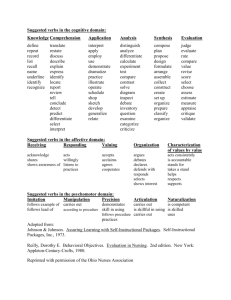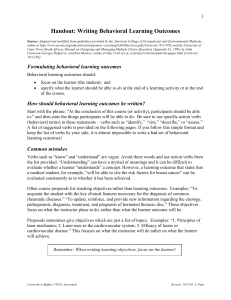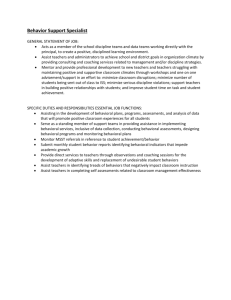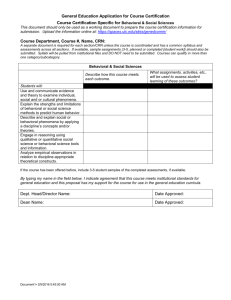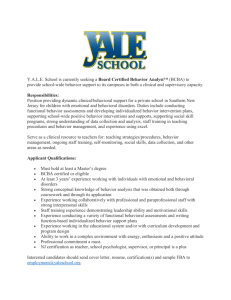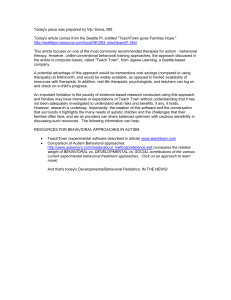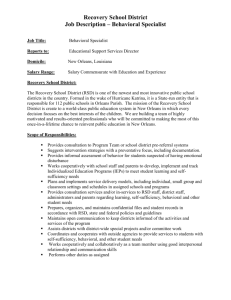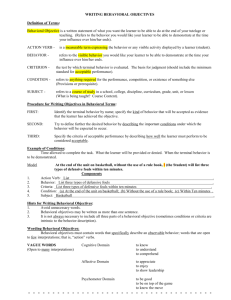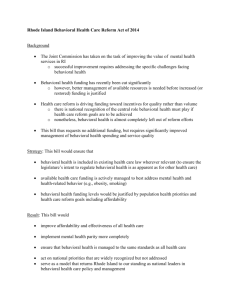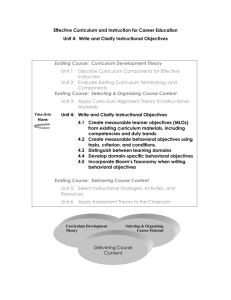Tips for Writing Objectives - Rhode Island State Nurses Association
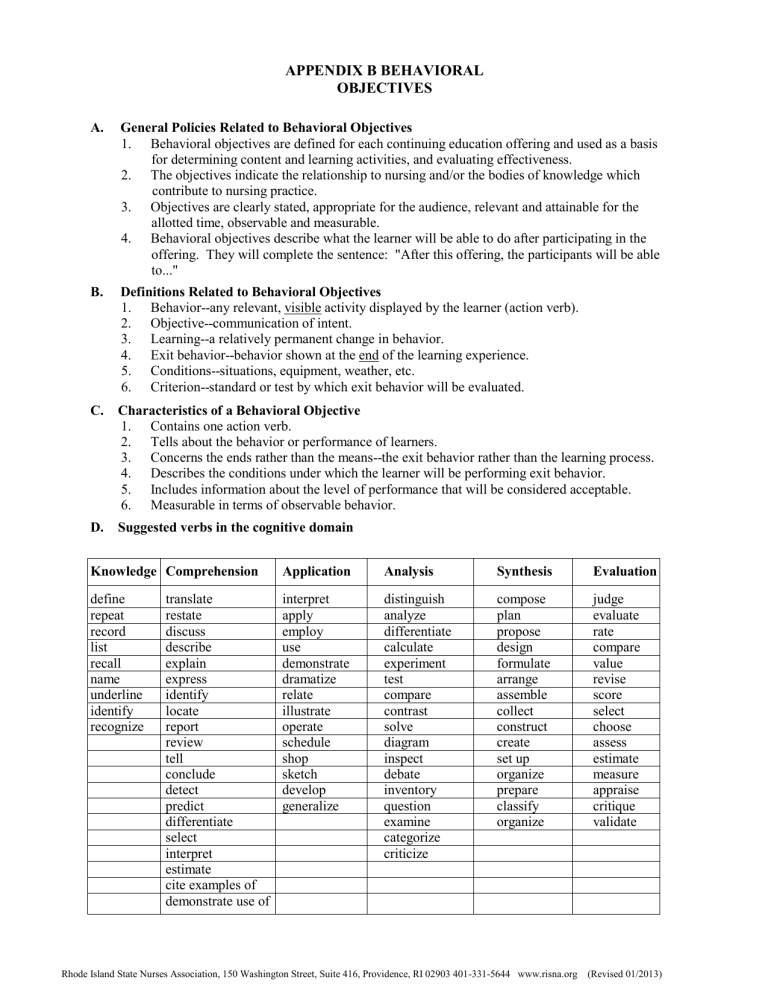
APPENDIX B BEHAVIORAL
OBJECTIVES
A. General Policies Related to Behavioral Objectives
1. Behavioral objectives are defined for each continuing education offering and used as a basis for determining content and learning activities, and evaluating effectiveness.
2. The objectives indicate the relationship to nursing and/or the bodies of knowledge which contribute to nursing practice.
3. Objectives are clearly stated, appropriate for the audience, relevant and attainable for the allotted time, observable and measurable.
4. Behavioral objectives describe what the learner will be able to do after participating in the offering. They will complete the sentence: "After this offering, the participants will be able to..."
B. Definitions Related to Behavioral Objectives
1. Behavior--any relevant, visible activity displayed by the learner (action verb).
2. Objective--communication of intent.
3. Learning--a relatively permanent change in behavior.
4. Exit behavior--behavior shown at the end of the learning experience.
5. Conditions--situations, equipment, weather, etc.
6. Criterion--standard or test by which exit behavior will be evaluated.
C. Characteristics of a Behavioral Objective
1. Contains one action verb.
2. Tells about the behavior or performance of learners.
3. Concerns the ends rather than the means--the exit behavior rather than the learning process.
4. Describes the conditions under which the learner will be performing exit behavior.
5. Includes information about the level of performance that will be considered acceptable.
6. Measurable in terms of observable behavior.
D. Suggested verbs in the cognitive domain
Knowledge Comprehension Application Analysis Synthesis define repeat record list recall name translate restate discuss describe explain express underline identify identify locate interpret apply employ use relate illustrate demonstrate dramatize recognize report review tell conclude detect predict differentiate select interpret estimate cite examples of demonstrate use of operate schedule shop sketch develop generalize distinguish analyze differentiate calculate experiment test compare contrast solve diagram inspect debate inventory question examine categorize criticize compose plan propose design formulate arrange assemble collect construct create set up organize prepare classify organize
Evaluation judge evaluate rate compare value revise score select choose assess estimate measure appraise critique validate
Rhode Island State Nurses Association, 150 Washington Street, Suite 416, Providence, RI 02903 401-331-5644 www.risna.org (Revised 01/2013)
E . Suggested verbs in the affective domain
Receiving acknowledge shares shows awareness of
Responding acts willingly listens to
Valuing accepts acclaims agrees cooperates with
Organization argues debates declares defends responds selects shows interest
Characterization of values by value acts consistently is accountable stands for takes a stand helps respects supports
F. Suggested verbs in the psychomotor domain
Imitation follows example of follows lead of
Manipulation carries out according to procedure
Precision demonstrates skill in using follows procedure practices
Articulation carries out is skillful in using
Naturalization is competent is skilled carries out uses
Adopted from:
Johnson & Johnson. Assuring Learning with Self-Instructional Packages. Self-Instructional Packages, Inc., 1973.
Reilly, Dorothy E. Behavioral Objectives. Evaluation in Nursing. 2nd edition. New York: Appleton-
Century-Crofts, 1980.
Rhode Island State Nurses Association, 150 Washington Street, Suite 416, Providence, RI 02903 401-331-5644 www.risna.org (Revised 01/2013)

